Oxford-Cambridge arc: 'Most people don't know what it is'
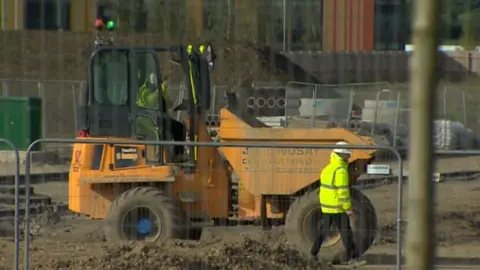 Steve Hubbard/BBC
Steve Hubbard/BBCThe government is proposing to develop an economic zone known as the Oxford to Cambridge arc, which it claims will double the size of the local economy. Supporters say it will bring jobs and growth to the region, but critics think a project of this size is not needed.
Plans for a major new road linking the two cities have been scrapped, the original aim of building a million new homes has been dropped, but the East-West rail link is still going ahead.
The arc follows a curve on the map that also takes in Milton Keynes, Northampton and Bedford and covers an area which has a population of about 3.5 million people.
As a public consultation ends with fewer than 6,000 responses, what do people in St Neots in Cambridgeshire, one of the towns in the arc, think of the plans?

'The arc is being imposed on the residents'
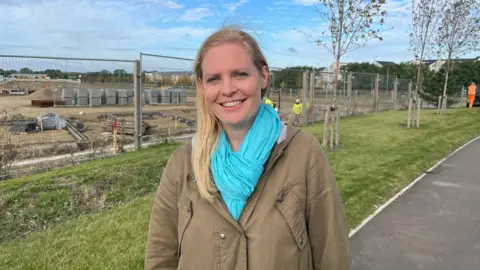 Steve Hubbard/BBC
Steve Hubbard/BBCLara Davenport-Ray, from the Huntingdonshire Green Party, says she is "quite disappointed with the consultation".
"The government has been thinking of the idea of an Oxford-Cambridge arc for over six years and this is first time the public has been asked for feedback," she says.
She says the questions are "worded in quite a complex way" and there is not enough detail in the plans and describes it as a "top-down idea that's being imposed on the residents who live in the arc".
Ms Davenport-Ray says she has "little faith that our feedback might be used".
"There is a need for the government to address housing need, but I'm not convinced the area of land for the arc is where that need is greatest," she adds.

'Brain drain fears'
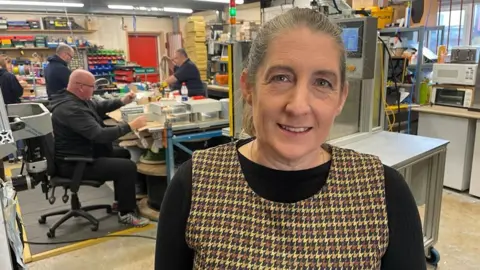 Steve Hubbard/BBC
Steve Hubbard/BBCPhilippa Shoobert owns engineering and software firm Smart Control Solutions, which has been in St Neots since 2003.
She says the consultation is a "very long and quite intimidating document" and is "the kind of thing you look at and go 'no-one's going to listen to me'".
"I think it's important, if you are going to develop such a long piece of land, you don't leave us as a housing estate for the big cities at either end," she says.
"We're important and, if you want to make people's lives easy and their commutes less, it's important you give us industrial land to use and not for people to have out-of-town shopping.
"You need to have jobs locally. There's no land, they are taking every chunk of land and putting houses on it."
Ms Shoobert is worried the arc would lead to a "brain drain" for places like St Neots, with people taking jobs in the cities in the arc.
"Just because you want to develop this arc doesn't mean it works for everybody," she adds.

'I'm worried about the town's character'
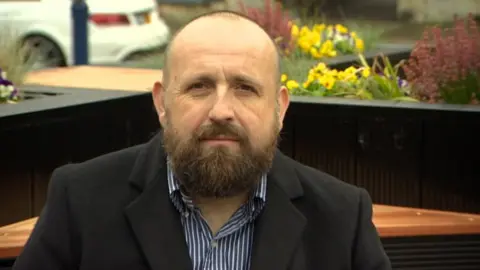 Steve Hubbard/BBC
Steve Hubbard/BBCCouncillor Stephen Ferguson, the mayor of St Neots, says: "The town is going through a really positive economic spurt after coronavirus.
"We've had lots of investment in the town, the high street is opening up again and we've the signs of economic prosperity returning."
The independent town and county councillor says he hopes the Oxford-Cambridge arc will "bring science and technology jobs into the area which is crucial for a town of our size".
"But the downside is the massive population growth and the massive house building," he adds.
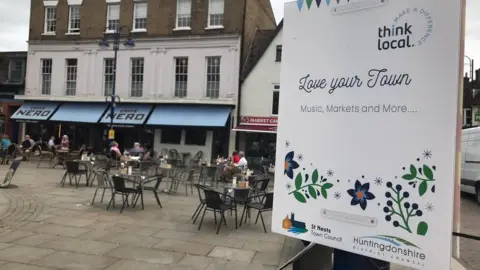
Mr Ferguson contributed to the consultation but says the questions were "obvious things people would be in favour of - economic growth, more houses, more affordable housing".
"There are no real hard facts of what they are going to do," he says.
"I'm worried the Oxford-Cambridge arc and level of development they're proposing is going to detract from our character as a historic town, and the rural nature of surrounding towns and villages, and I don't think building that many houses will help us achieve our zero-carbon goals.
"Most people aren't aware of [the arc] and the regular person in the street doesn't understand what it is."

'Feedback really helpful'
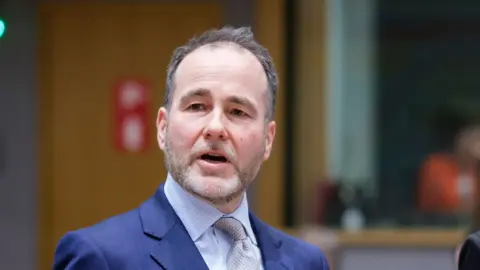 Getty Images
Getty ImagesThe Department for Levelling Up, Housing and Communities says it wants development in the arc to protect and enhance the natural environment.
Chris Pincher, the government's Minister for Housing, says about a quarter of the responses to the consultation have been from "people who have never responded to a consultation before".
"So we're getting good feedback from a wide variety of people and that will provide really helpful input to the policy propositions that we will generate over the next few months into 2022," he says.
Two further rounds of consultations are due in the spring when the public will be asked to respond to more detailed options.

Find BBC News: East of England on Facebook, Instagram and Twitter. If you have a story suggestion email [email protected]
